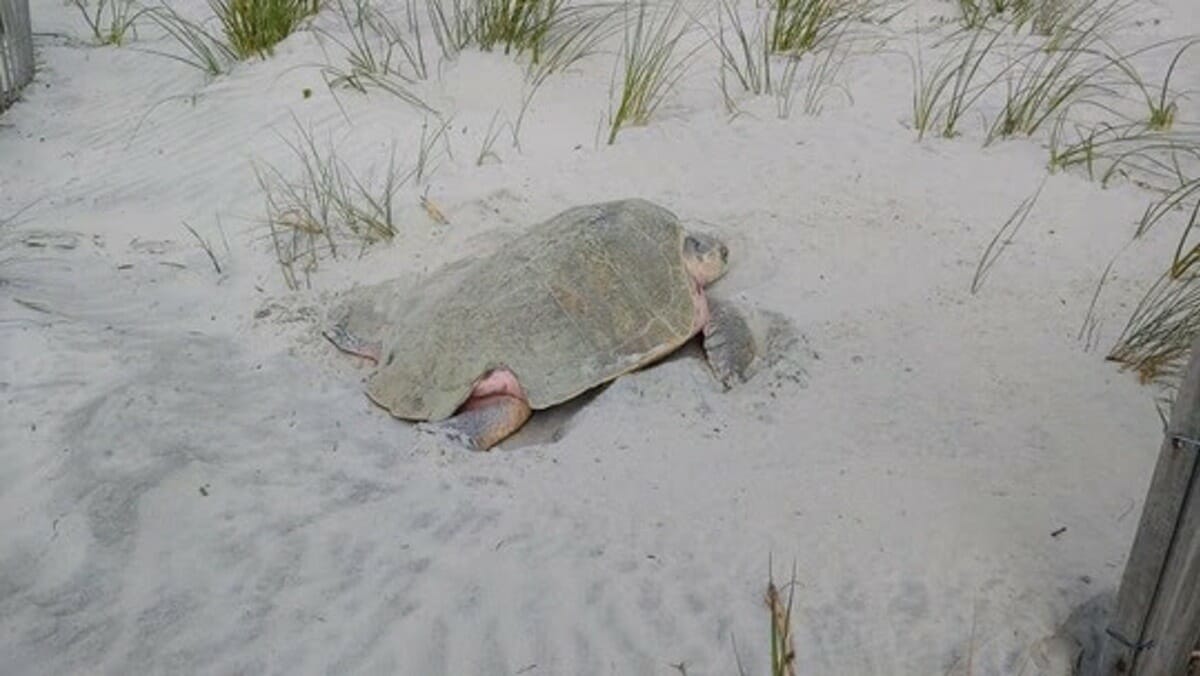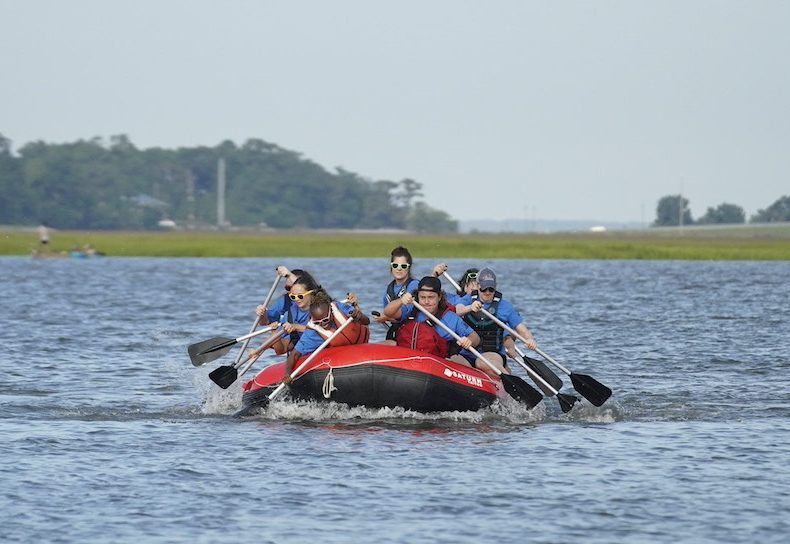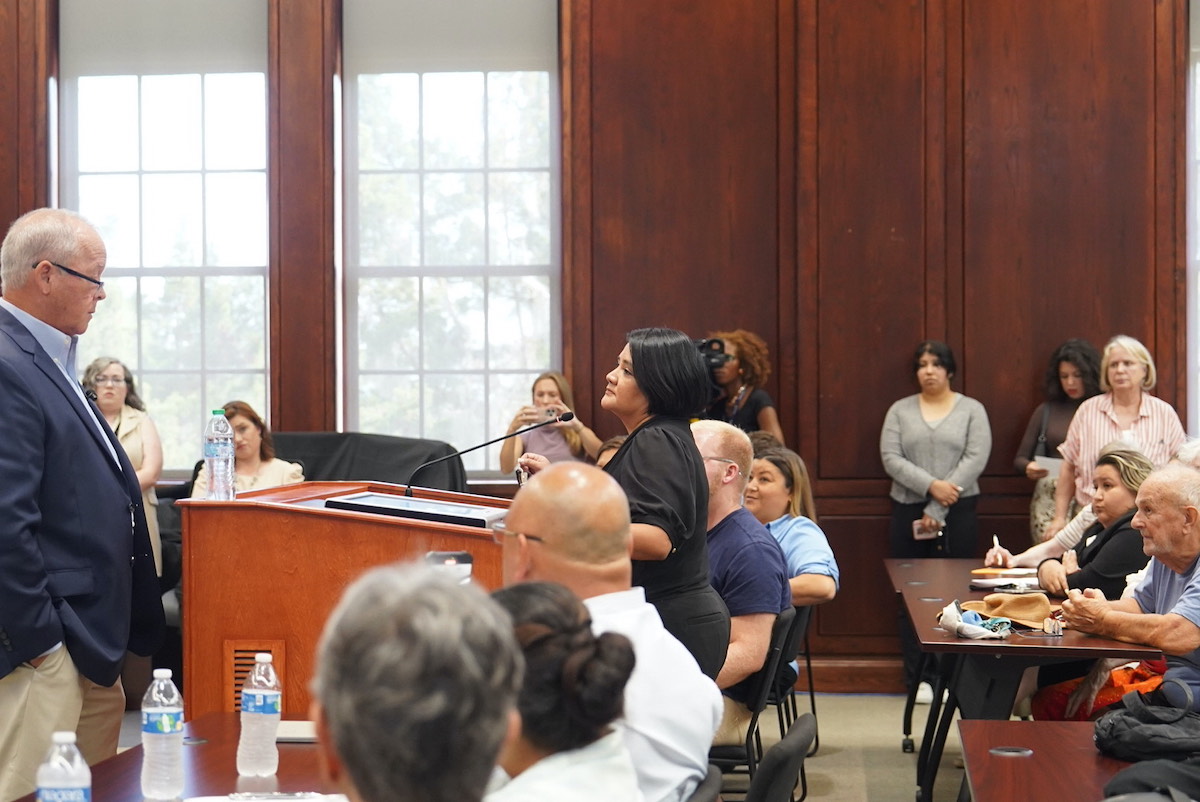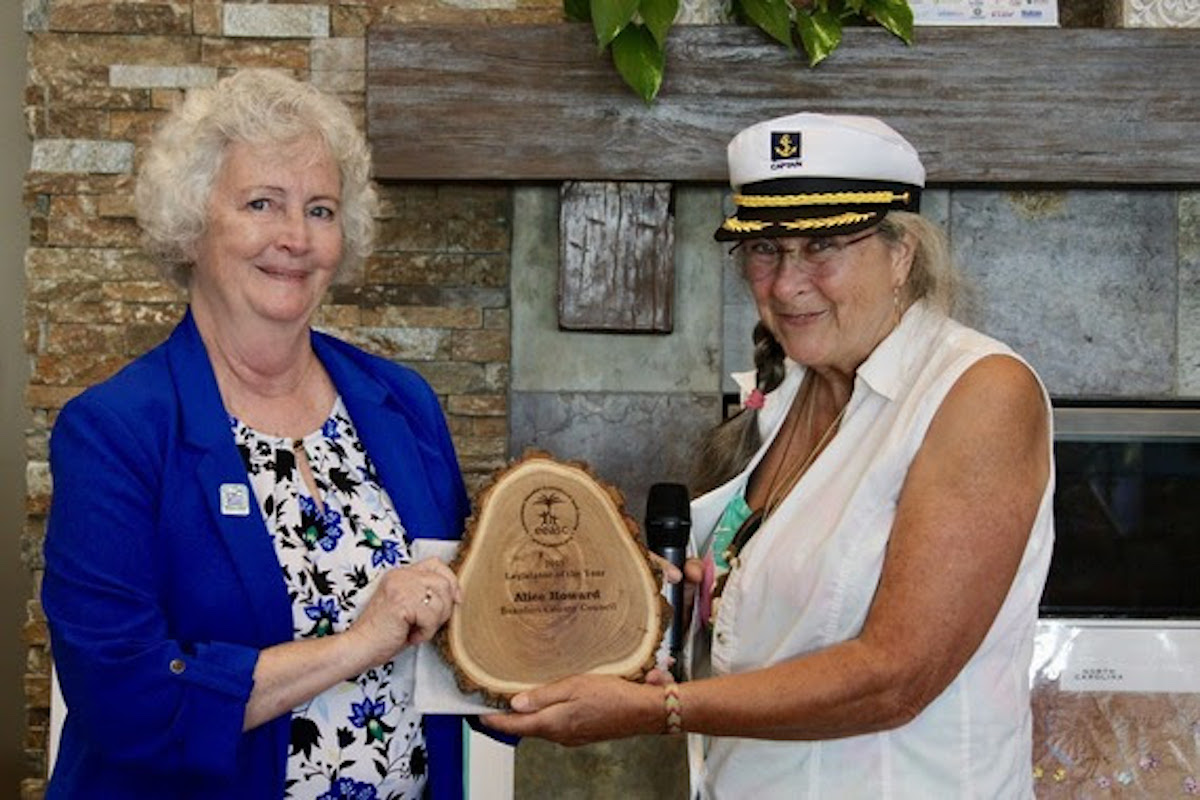Though South Carolina’s official sea turtle nesting season runs from May 1 to Oct. 31 each year, the S.C. Department of Natural Resources (SCDNR) announced the beginning of the state’s a week early last week after two unusual nesting events.
Sometime during the night of Thursday, April 25, a loggerhead female came ashore on Kiawah Island and laid the first reported nest of the season.
“To my knowledge, this is the earliest we’ve seen a sea turtle nest in South Carolina,” SCDNR biologist Michelle Pate said. “May 1 is the average, but we’ve had a warm winter and several reports of mating loggerheads over recent weeks – so we knew it was just a matter of time.”
Beach-goers on Hilton Head Island were then treated to an even rarer sight – another female sea turtle nesting in broad daylight. When the animal came ashore, volunteers noticed she did not resemble the typical loggerhead sea turtle that nests on South Carolina beaches. SCDNR biologists confirmed that the turtle was in fact an endangered Kemp’s ridley sea turtle.
“This is only the fourth confirmed Kemp’s nest in South Carolina since record-keeping started in the 1970s,” Pate said. “An exciting kick-off to the season, to say the least.”
This year’s warm winter prompted the early arrival of sea turtles in South Carolina waters, many in pursuit of cannonball jellyfish and other favorite food items. SCDNR biologists are anticipating a successful year of high nest numbers, following a dip in 2018.
Volunteers from 30 different nest-protection programs will spend the next several months patrolling South Carolina’s beaches, including the beach at Hunting Island State Park, each morning for crawls, the telltale tracks left by a female sea turtle as it trundles ashore. Between bright lights, hazardous debris, and natural or man-made obstacles, beaches can be treacherous places for nesting females. Incubating eggs face additional threats, including erosive high tides and predators such as coyotes and raccoons.
Four sea turtle species nest on South Carolina beaches: loggerheads, greens, Kemp’s ridleys, and leatherbacks. Loggerhead nests comprise the vast majority of the state’s total number each year. All four sea turtle species are classified as endangered or threatened and are protected under the Endangered Species Act in addition to local and state ordinances.
Sea turtle clutches average 120 eggs and hatch after approximately 60 days. Nesting females may remain in South Carolina waters and continue to nest every two weeks, laying up to six nests per season. Throughout this stressful time, the turtles also abstain from eating.
South Carolina beachgoers can help the state’s sea turtles by keeping beaches clean, turning beachfront lights out to avoid disorienting turtles, and giving all sea turtles and nests a wide and respectful berth when encountered on the beach.
SCDNR Sea Turtle Nesting Season Tips
– Report all sick/injured/dead sea turtles and nest disturbances to the SCDNR at 1-800-922-5431.
– Respect boating laws and boat cautiously, especially in small tidal creeks where sea turtles like to feed. Boat strikes are the leading cause of death for sea turtles in South Carolina.
– Keep artificial lights off the beach at night during nesting season – this includes beachfront property lights and flash photography, which can disorient nesting mothers and hatchlings.
– Always respect sea turtles by observing them from a distance on the beach. Individuals that violate federal law by harming or interfering with sea turtles or their nests can be subject to civil penalties of up to $25,000 and up to a year’s imprisonment.
– Keep our beaches and ocean clean by avoiding single-use plastics. Plastic bags and balloons are among the most common trash items found on South Carolina beaches and can cause injury or death when sea turtles mistake them for food.
– Promote and support the SCDNR’s program (https://tinyurl.com/y58ba7sc) for continued conservation of sea turtles in South Carolina.
Photo by Amber Kuehn: Day-nesting sea turtles are unusual enough – but then volunteers discovered this turtle, on Hilton Head Island, was a rare Kemp’s ridley sea turtle.







